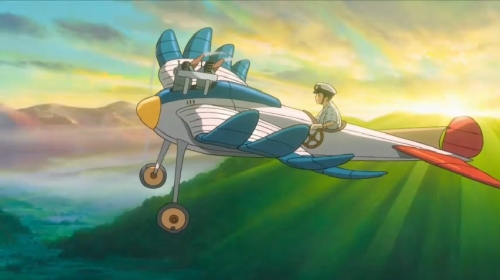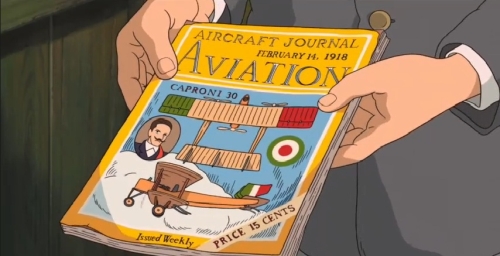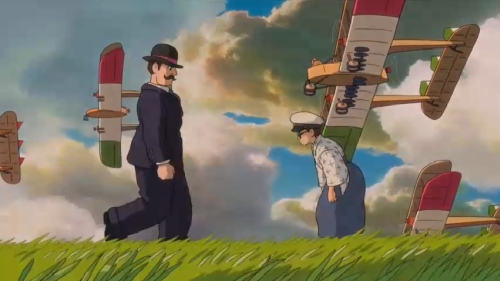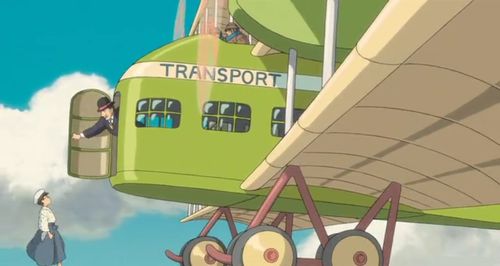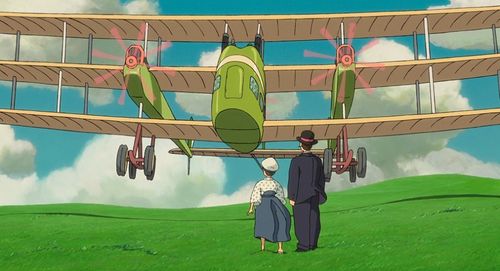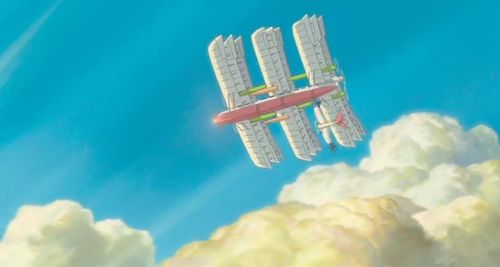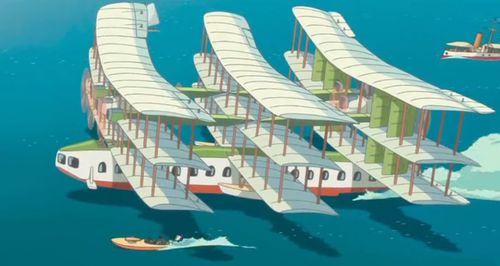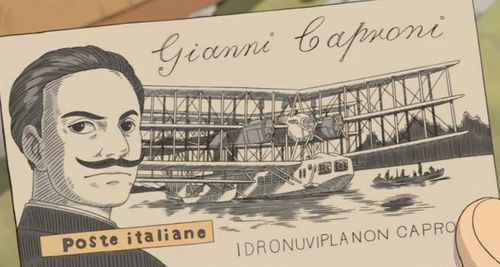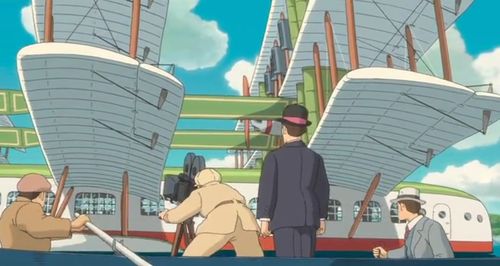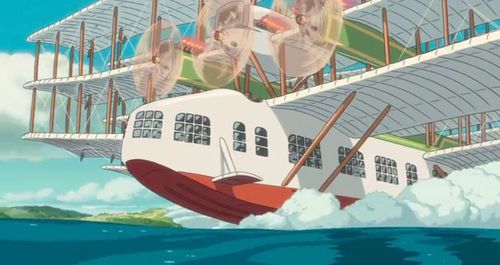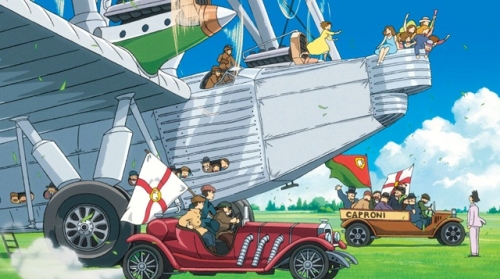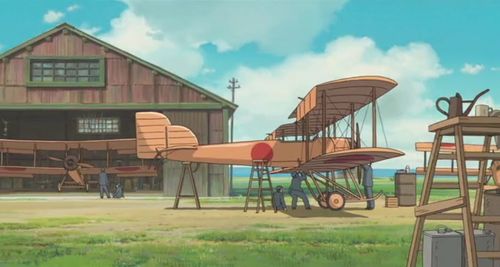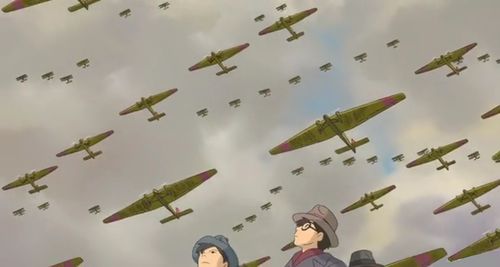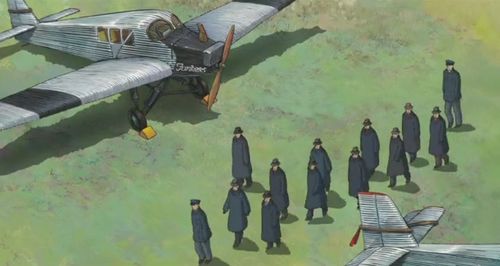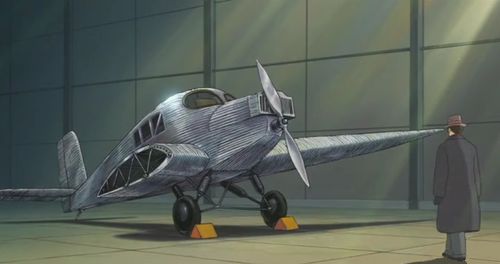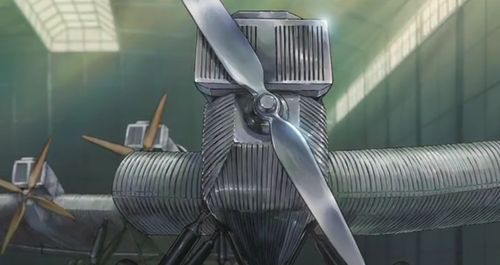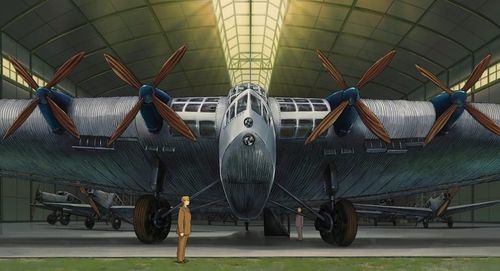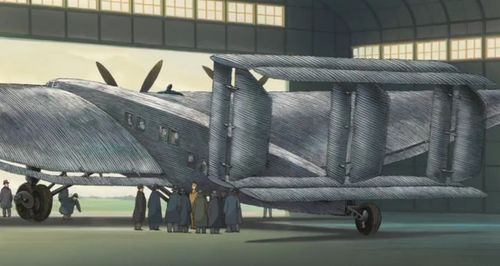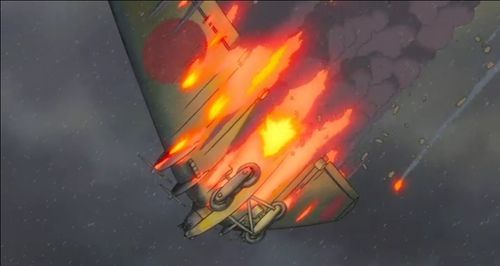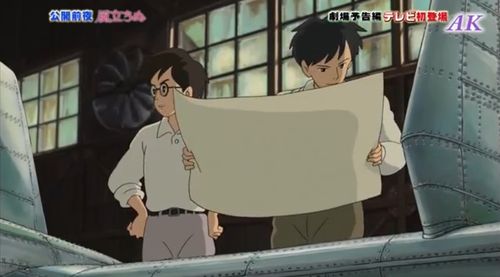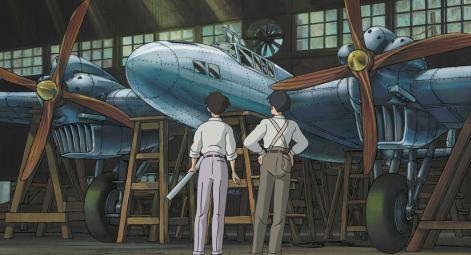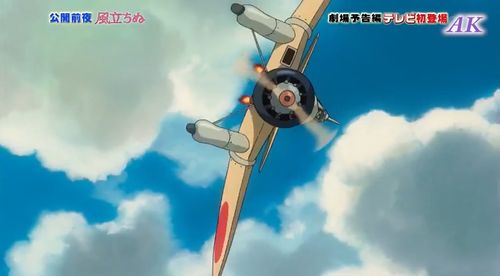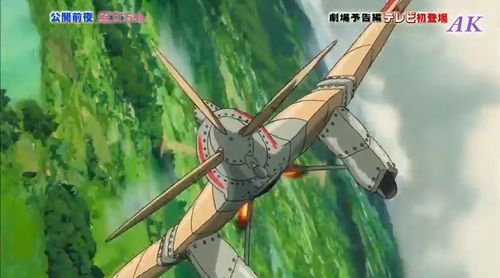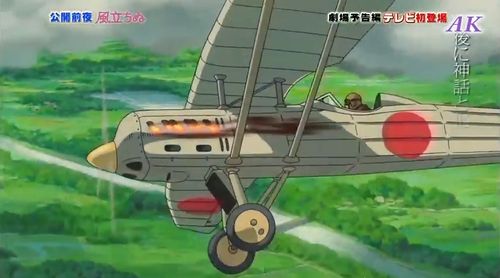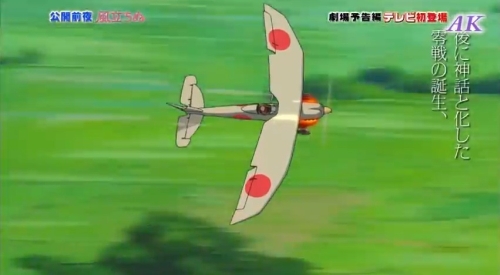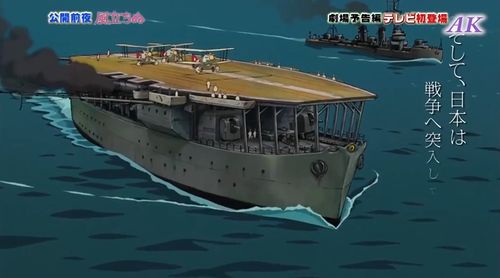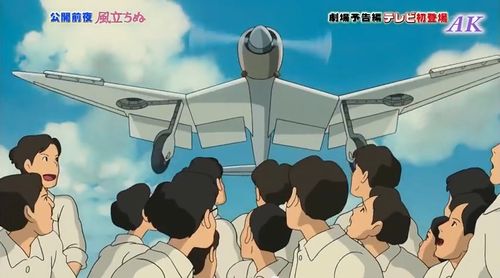Difference between revisions of "Kaze tachinu"
| Line 47: | Line 47: | ||
Jiro Horikoshi recently graduates as ingineer in 1927. This is the first aircraft he could quickly see at the Mitsubishi factory. | Jiro Horikoshi recently graduates as ingineer in 1927. This is the first aircraft he could quickly see at the Mitsubishi factory. | ||
[[Image:KT_biplane_hinomaru.jpg|thumb|500px|none|]] | [[Image:KT_biplane_hinomaru.jpg|thumb|500px|none|]] | ||
| + | |||
| + | == [[:Category: Tupolev TB-1|Tupolev TB-1]] == | ||
| + | During the travel through Soviet Union, the japanese engineers saw a flypast. | ||
| + | [[Image:KT_Tupolev_TB-1.jpg|thumb|500px|none|]] | ||
== [[:Category: Junkers F 13 |Junkers F 13 ]] == | == [[:Category: Junkers F 13 |Junkers F 13 ]] == | ||
| Line 55: | Line 59: | ||
Behind the Junkers F 13 we can guess what seems to be a trimotor. At this time, the only Junkers trimotor was the Junkers G 23 (and the wider G 24) but the engines were slighty different and the propeller were a three blade one on the center with two two blade ones on the wing's engines. | Behind the Junkers F 13 we can guess what seems to be a trimotor. At this time, the only Junkers trimotor was the Junkers G 23 (and the wider G 24) but the engines were slighty different and the propeller were a three blade one on the center with two two blade ones on the wing's engines. | ||
[[Image:KT Junkers G-23-false.jpg|thumb|500px|none|]] | [[Image:KT Junkers G-23-false.jpg|thumb|500px|none|]] | ||
| − | |||
| − | |||
== [[:Category: Junkers G 38|Junkers G 38]] == | == [[:Category: Junkers G 38|Junkers G 38]] == | ||
[[Image:KT_Junkers_G-38.jpg|thumb|500px|none|]] | [[Image:KT_Junkers_G-38.jpg|thumb|500px|none|]] | ||
| − | [[Image:|thumb|500px|none|]] | + | [[Image:KT_Junkers_G-38b.jpg|thumb|500px|none|]] |
== Mitsubishi Ki-20 == | == Mitsubishi Ki-20 == | ||
| − | + | [[Image:KT_Mitsubishi_Ki-20.jpg|thumb|500px|none|]] | |
== Mitsubishi G1M1 == | == Mitsubishi G1M1 == | ||
| Line 81: | Line 83: | ||
== [[:Category: Mitsubishi G3M | Mitsubishi G3M ]] == | == [[:Category: Mitsubishi G3M | Mitsubishi G3M ]] == | ||
(missing screenshot) | (missing screenshot) | ||
| + | [[Image:|thumb|500px|none|]] | ||
| + | |||
== [[:Category: Polikarpov I-15|Polikarpov I-15bis]] == | == [[:Category: Polikarpov I-15|Polikarpov I-15bis]] == | ||
| Line 125: | Line 129: | ||
[[Category: Mitsubishi G3M]] | [[Category: Mitsubishi G3M]] | ||
[[Category: Polikarpov I-15]] | [[Category: Polikarpov I-15]] | ||
| + | [[Category: Tupolev TB-1]] | ||
Revision as of 11:05, 30 March 2014
| This page needs completing!
This page has been identified as unfinished and with no recent activity. Anyone is free to work on it, new users can find more information here. |
Animated Movie (2013)
Also known as:
The Wind Rises (internatinal title)
Le vent se lève (french title)
風立ちぬ
Starring:
Voices depending the country.
A fictionalised biography of Jiro Horikoshi, designer of the Mitsubishi A6M Zero fighter aircraft which served in World War II.
Note: This is an animated film. The aircraft shown in it are therefore not actual aircraft, however, where a reasonable depiction of an actual aircraft has been created, it has been identified as best as possible.
Fictional Dream Machine
Caproni Ca.3
Caproni Ca-30 is a post war identification.
Caproni Ca.4
Caproni Ca.60 Noviplano
The Caproni Ca.60 Noviplano was a nine-wing flying boat intended to be a prototype for a 100-passenger trans-atlantic airliner. First and single flight on 4th March 1921.
A realistic portrait of Giovanni Battista Caproni.
Caproni Ca.90
Caproni Ca.73
(missing screenshot)
Unidentified Aircraft
Jiro Horikoshi recently graduates as ingineer in 1927. This is the first aircraft he could quickly see at the Mitsubishi factory.
Tupolev TB-1
During the travel through Soviet Union, the japanese engineers saw a flypast.
Junkers F 13
Junkers G 23 ?
Behind the Junkers F 13 we can guess what seems to be a trimotor. At this time, the only Junkers trimotor was the Junkers G 23 (and the wider G 24) but the engines were slighty different and the propeller were a three blade one on the center with two two blade ones on the wing's engines.
Junkers G 38
Mitsubishi Ki-20
Mitsubishi G1M1
The Mitsubishi G1M1 (also known as Mitsubishi Ka.9) was unique and led to the G3M bomber.
Mitsubishi Experimental 7-Shi
This carrier fighter has the company designation 1MF10.
Mitsubishi 1MF2
Mitsubishi G3M
(missing screenshot) [[Image:|thumb|500px|none|]]
Polikarpov I-15bis
(despite an upper gull wing).
(missing screenshot)
Mitsubishi B2M (to confirm)
(missing screenshot)
Yokosuka B4Y
Mitsubishi A5M concept
Mitsubishi A5M prototype
(also known as Mitsubishi Ka.14).
Unlike the serial Mitsubishi A5M, the prototype had an inverted gull wing.
(missing screenshot)
Boeing B-29 Superfortress
(missing screenshot)
Unidentified Aircraft
Don't remember what type of japanese fighter tried to intercept the Boeing B-29.
(missing screenshot)
Mitsubishi A6M Zero
(missing screenshot)
Back To:

